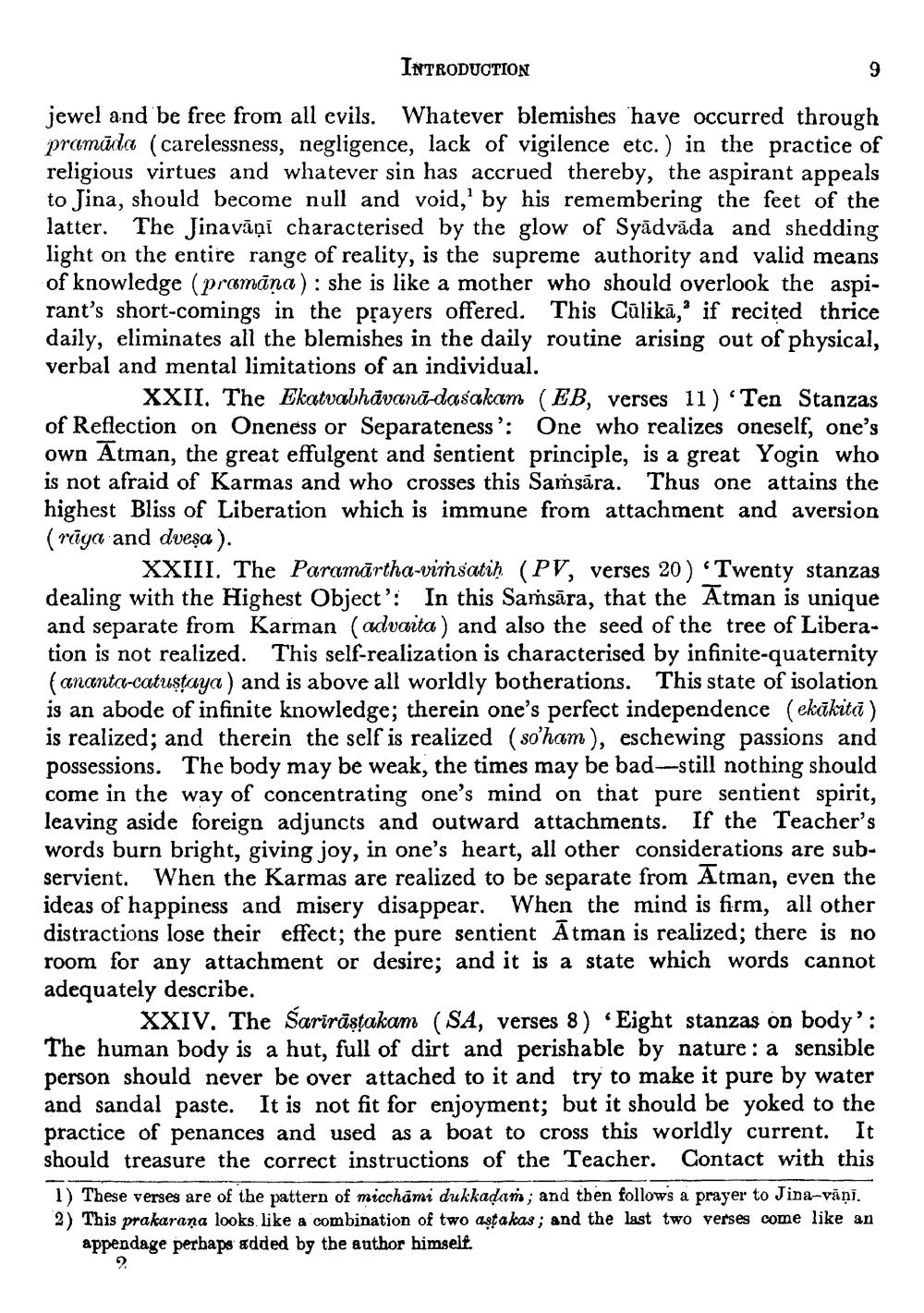________________
INTRODUCTION
jewel and be free from all evils. Whatever blemishes have occurred through pramūda (carelessness, negligence, lack of vigilence etc.) in the practice of religious virtues and whatever sin has accrued thereby, the aspirant appeals
na, should become null and void,' by his remembering the feet of the latter. The Jinavāņi characterised by the glow of Syādvāda and shedding light on the entire range of reality, is the supreme authority and valid means of knowledge (promāna): she is like a mother who should overlook the aspirant's short-comings in the prayers offered. This Cūlikā," if recited thrice daily, eliminates all the blemishes in the daily routine arising out of physical, verbal and mental limitations of an individual.
XXII. The Ekatvabhāvanādasakam (EB, verses 11 ) 'Ten Stanzas of Reflection on Oneness or Separateness': One who realizes oneself, one's own Atman, the great effulgent and sentient principle, is a great Yogin who is not afraid of Karmas and who crosses this Samsāra. Thus one attains the highest Bliss of Liberation which is immune from attachment and aversion (rāga and dveşa ).
XXIII. The Paramārtha-vimsatih (PV, verses 20) “Twenty stanzas dealing with the Highest Object': In this Saṁsāra, that the Atman is unique and separate from Karman (advaita) and also the seed of the tree of Liberation is not realized. This self-realization is characterised by infinite-quaternity (ananta-catustaya) and is above all worldly botherations. This state of isolation is an abode of infinite knowledge; therein one's perfect independence (ekākita ) is realized; and therein the self is realized (so'ham), eschewing passions and possessions. The body may be weak, the times may be bad-still nothing should come in the way of concentrating one's mind on that pure sentient spirit, leaving aside foreign adjuncts and outward attachments. If the Teacher's words burn bright, giving joy, in one's heart, all other considerations are subservient. When the Karmas are realized to be separate from Atman, even the ideas of happiness and misery disappear. When the mind is firm, all other distractions lose their effect; the pure sentient Ātman is realized; there is no room for any attachment or desire; and it is a state which words cannot adequately describe.
XXIV. The Sarīrāstakam (SA, verses 8) Eight stanzas on body': The human body is a hut, full of dirt and perishable by nature: a sensible person should never be over attached to it and try to make it pure by water and sandal paste. It is not fit for enjoyment; but it should be yoked to the practice of penances and used as a boat to cross this worldly current. It should treasure the correct instructions of the Teacher. Contact with this 1) These verses are of the pattern of micchāmi dukkadam; and then follows a prayer to Jina-vāņi. 2) This prakarana looks like a combination of two astakas; and the last two verses come like an
appendage perhaps added by the author himself.




